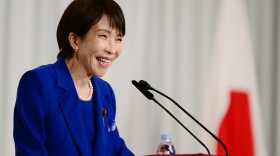President Trump says he will raise tariffs on India “substantially” because the country is, in his words, “buying massive amounts of Russian oil.”
That threat is the latest evidence of the unravelling of a partnership that had looked like it was getting closer, and not just in trade.
Indian Prime Minister Narendra Modi was one of the first foreign leaders at the White House in the early days of President Trump's second term.
In April, Vice President JD Vance met Modi in New Delhi, holding out hope for a trade agreement and praising a “road map toward a final deal between our nations.”
Treasury Secretary Scott Bessent said India could be one of the first countries to finalize a trade deal with the United States. But the speed with which relations are deteriorating is drawing comments in both countries.

A column in the Indian Express on Monday questioned whether India should wait for China's trade deal to take shape before making any commitments to Washington.
Bilateral trade relations are one matter, but multilateral security arrangements are another — and there's the potential for some awkwardness.
India and the United States are linked in a regional security group called the “Quad," along with Japan and Australia. It's a group that diplomats describe as a regional counterweight to China.
Last month, foreign ministers from the Quad met in Washington, launching a collaboration on “securing and diversifying critical mineral supply chains.”
The follow-up leaders' summit is scheduled for this year, which will be held in India. However, no date has been set.




